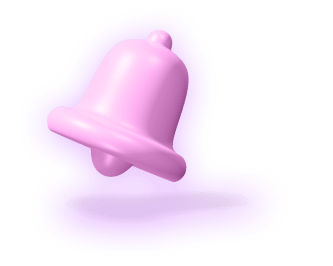In academic research papers, extensive investigation and analysis of the findings are conducted before writing the article.
You can use this advice if you are afraid that high-quality research will necessitate a lot of blood, sweat, and tears.
Suppose you are working using out-of-date tools and procedures. In that case, you will have to spend countless hours researching relevant and less relevant literature, categorizing it, and writing and rewriting the job to get it done.
You may want the assistance of a pro essay writing service because this form of writing is complicated.
Alternatively, you may simplify the procedure and expend far less work. The suggestions that follow will assist you in improving your performance.
Here are 11 tips for writing an excellent research paper.
Be clear about your research topic
You will inevitably wind yourself in the wrong spot without a clear sense of direction. This assertion has a great deal to do with the research process itself.
Without a clear understanding of what you are looking for, you may waste valuable time investigating intriguing but irrelevant data.
From the beginning of your study, make an effort to establish a precise query.
Choose a broad topic and conduct a brief preliminary investigation before posing a particular question.
A good research question should be transparent, meaningful, and investigatable.
Discuss the scope of work
In most cases, it will be influenced by the amount of difficulty.
If a student wants to present at a scientific conference, they must prepare around 20-30 pages of written content.
The graduation project might be as long as 100 pages in length.
Data management
You must avoid falling into the trap of feeling disoriented when conducting your study.
If you find an item you particularly enjoyed, make a note of the link to it; otherwise, you may spend a significant amount of time attempting to locate it again, mainly since it is the finest resource available.
Modern data management solutions, however, allow you to quickly and conveniently save all the information you want and sort it out and organize it.
Make your introduction compelling
To capture the reader’s attention, use fascinating figures, alarming facts, or statements from well-known individuals.
The significance of a given study is discussed in detail in the main body of the research report.
Playing with your readers’ anxieties or selfishness might help you connect with them more profoundly.
Formulate the aim of the job as well as the duties from the very beginning.
This will be beneficial in concluding.
And when it comes to completing tasks, it is far more effective to articulate them clearly.
See also: 5 Tips to Improve Quality Data in Your Research
Determine the relevance
According to the usual rule of thumb, you should devote up to 10% of your entire word count to an introduction and a conclusion.
You may then select how many words should be included in each part if you know the suggested word count.
Consider the purpose of the sections
The conclusion should be brief and serve as a summa and study findings.
Following the end of your project, you should write a conclusion.
- The introduction should give background information, emphasize the significance of exploring the issue, and define the primary research questions.
- The literature review should incorporate current viewpoints on the issue.
- The methodology outlines precise procedures and instruments employed in the study and a sample appropriate for the situation.
- At the end of the paper, just the findings are mentioned (without any comments).
- The discussion of the outcomes of the analysis reveals the link between any particular facts discovered.
- Limitations highlight potential flaws in the study design and techniques by highlighting their existence.
- The conclusion provides a concise summary of the essential topics and serves as a mirror to the introduction.
Make sure to emphasize the importance of your study effort and potential topics for additional investigation.
Review the literature
Gathering sources and writing only a few lines on each is the wrong approach.
Please list your references and categorize them according to the writers’ perspectives before beginning to write your literature review.
Make sure to incorporate opposing viewpoints and draw attention to current literature gaps. Your task will be completed as a result of this.
Track the consistency of the work
After writing it, it is critical to go back over it and ensure that the logical order, the sequence of the course of the research, or the sequence of thinking, has not been broken.
Cite your resources correctly
When referencing sources, it is unnecessary to follow the style guide because it is an out-of-date technique; instead, free internet citation generators should be considered.
Use fluency
In case you find yourself stuck in your research paper at some point, consider writing more freely. Write the area as though you were giving a presentation to a buddy about your main ideas.
This can help you enhance the flow of ideas for your job and your ability to think logically.
Proofread carefully
After you have finished writing, proofread it for stylistic, grammatical, and spelling mistakes.
Put your work away for a bit, then come back to it later with a new perspective and erase any typos, grammatical, and stylistic errors you may have made.
How long should a research paper be?
A research paper’s length depends on the topic or assignment.
A research paper typically runs between 4,000 and 6,000 words, but it’s not uncommon to see shorter papers around 2,000 words or longer papers over 10,000 words.
Your paper’s length should be specified in your assignment if you’re writing it for school.
Alternatively, let your topic dictate the size: Complicated topics or extensive research will require more explanation.
What do you think about our 11 tips for writing an excellent research paper? Is this article beneficial?
Let’s visit RRSlide to download free PowerPoint templates. But wait, don’t go anywhere and stay here with our Blog to keep up-to-date on all the best pitch deck template collections and design advice from our PowerPoint experts!





